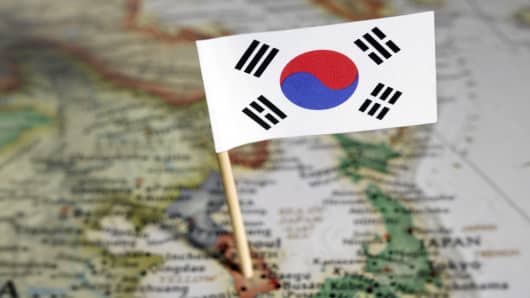The unprecedented surge of the South Korean won against the yen could put a substantial dent in exports for Asia's fourth largest economy, a report from the South Korean Hyundai Research Institute has shown.
According to the report, the value of Korea's total exports will decline by 0.92 percent when the yen-won exchange rate falls by one percent.
"This means Korea's exports can be reduced by six percent or more if the yen-won rate falls by 7 percent, which is the annual average expectation level of yen-dollar change of the Japanese government," read the report published on Sunday.
South Korea relies heavily on exports to fuel its economic growth. In 2011, exports contributed to 32 percent of South Korea's GDP, according to South Korea trade statistics.
(Read More: South Korea Stands to Gain as 'Abenomics' Hits Yen)
On Monday the won traded at its strongest level against the yen since early 2010, at 11.69 won to one yen, and has gained 18 percent versus the Japanese currency over the past three months, as expectations of aggressive Japanese monetary policy have weakened the yen against all major currencies.
Now over half of South Korean listed companies have missed expectations for their fourth-quarter earnings, demonstrating the strength of the won is taking its toll.
Currency analysts say the won has the scope to appreciate further, putting further pressure on exports.
"This has become a bigger concern since the beginning of October, when cross-rates surged by 23 percent. There is still momentum within the won, and technically it could go a lot further. In addition, the sensitivity of the KRW to JPY movements has increased over recent weeks," said Mitul Kotecha, head of global currency research at French investment bank Credit Agricole.



